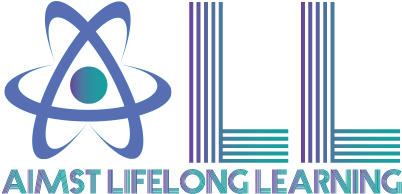
This course provides a deep dive into the fundamental concepts and practical techniques essential for understanding and implementing machine learning algorithms. Spanning fourteen weeks, the curriculum is structured to progressively build expertise, starting with mathematical foundations, and advancing through classical and contemporary machine learning methodologies.
| Module 1 | Mathematical Basics 1 – Introduction to Machine Learning, Linear Algebra |
| Module 2 | Mathematical Basics 2 - Probability |
| Module 3 | Computational Basics – Numerical Computation and Optimization, Introduction to Machine Learning Packages |
| Module 4 | Linear and Logistic Regression – Bias/Variance Tradeoff, Regularization, Variants of Gradient Descent, MLE, MAP, Applications |
| Module 5 | Neural Networks – Multilayer Perceptron, Backpropagation, Applications |
| Module 6 | Convolutional Neural Networks 1 – CNN Operations, CNN Architectures |
| Module 7 | Convolutional Neural Networks 2 – Training, Transfer Learning, Applications |
| Module 8 | Recurrent Neural Networks (RNN), LSTM, GRU, Applications |
| Module 9 | Classical Techniques 1 – Bayesian Regression, Binary Trees, Random Forests, SVM, Naïve Bayes, Applications |
| Module 10 | Classical Techniques 2 – k-Means, kNN, GMM, Expectation Maximization, Applications |

| Name | Mr.Raman. Raguraman |
| Qualifications | Chartered Engineer - Awarded by the Engineering Council UK. M. Eng in Power Systems. Certification in Machine Learning. Certification in Essential Mathematics for Machine Learning. Certification in Deep Learning from IIT Madras |
| Department | Faculty of Engineering and Computer Technology |
A Certification Programme in Machine Learning equips students with knowledge and skills in data analysis, algorithm development, and predictive modeling. Graduates can pursue various roles in data science, artificial intelligence, and analytics across a range of industries. Here are some potential career paths:
Machine Learning Engineer
- Design and implement machine learning models and algorithms, and work on optimizing them for performance and scalability.
Data Scientist
- Analyze large datasets to extract insights, build predictive models, and communicate findings to stakeholders.
AI Research Scientist
- Conduct research to advance the field of artificial intelligence, develop new algorithms, and publish findings.
Data Analyst
- Interpret data to help organizations make informed decisions, often using statistical tools and machine learning techniques.
Business Intelligence Developer
- Develop and manage business intelligence solutions, including data visualization dashboards and reporting tools.
Computer Vision Engineer
- Specialize in developing algorithms and systems that enable computers to interpret and process visual information from the real world.
Natural Language Processing (NLP) Engineer
- Develop systems that can understand, interpret, and generate human language, focusing on applications like chatbots and sentiment analysis.
Robotics Engineer
- Design and build robots, often incorporating machine learning techniques to enable autonomous behavior and decision-making.
Big Data Engineer
- Build and maintain scalable data processing systems, handling large volumes of data for analysis and machine learning applications.
Quantitative Analyst (Quant)
- Use mathematical models and machine learning techniques to analyze financial markets and assist in investment decisions.
Software Developer/Engineer with ML Focus
- Develop software applications that incorporate machine learning features, such as recommendation systems or automated customer support.
Data Engineer
- Focus on the architecture and infrastructure for data collection, storage, and processing, often supporting data science and machine learning teams.
AI Product Manager
- Oversee the development and deployment of AI and machine learning products, bridging the gap between technical teams and business stakeholders.
Deep Learning Specialist
- Focus on deep learning algorithms and architectures, such as neural networks, for applications in areas like image and speech recognition.
AI Ethics and Policy Specialist
- Work on developing policies and ethical guidelines for the use of AI and machine learning technologies.
Automation Engineer
- Develop systems and processes that use machine learning for automation, improving efficiency and reducing manual effort.
